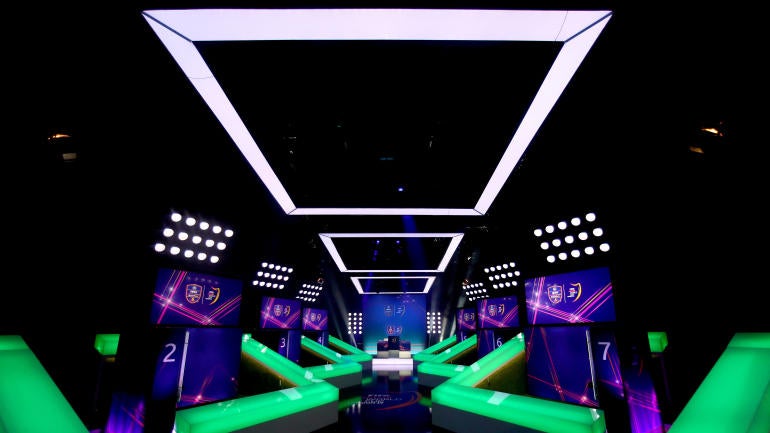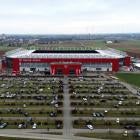
FIFA Ultimate Team celebrates its 12th birthday this year, which means the annual FUT Birthday promotion has returned for FIFA 21. The promotion typically calls back some of the most popular players from previous iterations of FIFA, giving them massive attribute boosts and special limited edition in-game items.
In addition, FUT Birthday means a range of themed in-game objectives and squad building challenges, as well as promotions for in-game purchases.
I've played EA Sports' FIFA since the inception of the game in 1993 as "FIFA International Soccer". I've seen the game evolve from a 16 bit novelty to the multi-billion dollar juggernaut that EA's most popular game mode, FIFA Ultimate Team (FUT), has become. I've been a hardcore FIFA enthusiast for years, and most recently, I've dabbled, and then become wholly addicted to FUT.
What actually is FUT
At its most basic level, FUT enables you to build your ideal team using all of FIFA's licensed players and leagues, playing online and offline to earn in-game "coins" and "packs" to obtain better players and win in-game competitions.
Using a concept called "chemistry", players can build their perfect XI by connecting players via "links" based on nationality, league and club team. Ideally, the team's overall chemistry is 100, with each player in the team able to achieve a maxed-out chemistry level of 10. The combinations and possibilities are literally endless, with players able to build hybrid teams using both current stars of today and "icons" or legendary footballers of the past.
For me, FUT was the perfect meld of the obsession with football tactics and team building I honed while playing years of cult classic football management simulation Football Manager, and the ability to take hands-on control of players as is typical in FIFA. At its best, FUT strikes a brilliant balance between allowing you to build your dream team of past and present players and fostering competition online at an elite level. At its worst? This is where it gets a little ugly.
EA's profit is largely driven by in-game microtransactions where players can spend real-life money on "packs" with randomized rewards. These so-called "loot boxes" have come under heavy scrutiny of late, and EA Sports has even been hit with a series of lawsuits over Ultimate Team being classed as gambling.
Can you become a pro through FUT?
Through this mode, any player can ostensibly become a pro. FUT Champions, often called "Weekend League", is a 30-game competition held from Friday to Sunday. According to EA's website, "registered players need to prove that they are an elite competitor to earn their entry into the FIFA 21 Global Series by reaching the Elite 1 rank in FUT Champions."
The most famous example of this is Donovan "Fnatic Tekkz" Hunt, one of the games most well known players. His meteoric rise was facilitated by unstoppably climbing the world rankings online before taking the competitive tournament circuit by storm. It's the pure unadulterated teenage dream of playing in your bedroom and winning and winning and winning until suddenly you're famous for playing video games,
Ok, but can you really become a pro through FUT?
In reality though, critics say it's become a purely pay-for-play mode that doesn't reward in-game ability, but rather how much players can spend on the game. They argue that the game has become too profit-driven, with players only able to be competitive by spending large amounts of real-life cash to "pack" big-time players. This is largely counter to the professional scene in other esports like Call of Duty, Rocket League, or League of Legends, where in-game spending has little to no effect on performance.
And that's not the only way the playing field can get tilted. Last month EA confirmed that rare cards were being secretly granted to players outside of official channels, something which is definitely not supposed to happen. Even if the scope of the illicit activity turns out to be relatively small, it further erodes the egalitarian appeal of climbing to professional heights through the Weekend League. How long can EA convince players that everybody can win amid stories showing how some players have advantages over others by means both official (spending lots of money) and outside the rules (acquiring cards through illicit means).
What next for FUT
Love it or hate it, the dollars just keep rolling in, and the numbers have only gone up during COVID. In May, it was reported that FIFA made a whopping £186,215,940 in just 66 days from when the United Kingdom's lockdown period started on March 23rd.
Should loot boxes be banned in countries such as Belgium and the United Kingdom, it would surely force EA to rethink their overall strategy surrounding in-game reward compensation and overall competition. A number of suggestions have been made, such as "unlocking" the FUT Champions competitive mode in the same way professional competitions are held, thereby allowing all items to be available for anyone competing and leveling the playing field.
The money guarantees that FUT isn't going to be going anywhere for a long while, but the potential legal complications, and the growing complaints about the lack of a level playing field also mean that while FUT is going to be sticking around, the next 12 years are likely to see it change as least as much as the first 12. Whatever the next move is, the EA community will be watching. Closely.





















